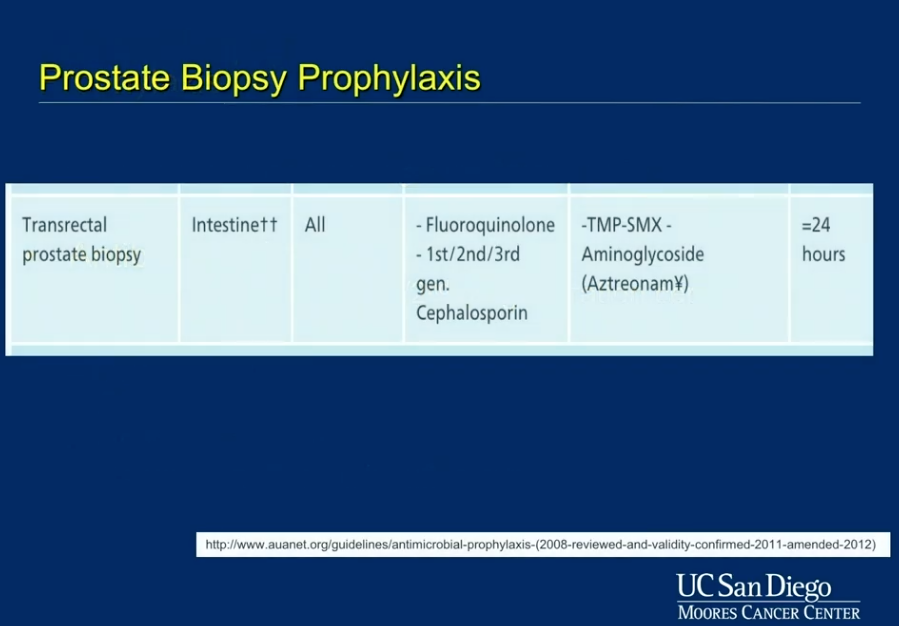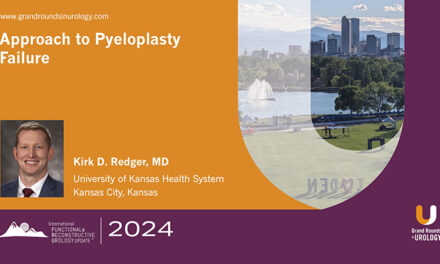J. Kellogg Parsons, MD, MHS, FACS, presented “Current Topics in Urological Patient Safety” during the 27th Annual Perspectives in Urology: Point Counterpoint on November 9, 2018 in Scottsdale, Arizona.
How to cite: Parsons, J. Kellogg. “Current Topics in Urological Patient Safety” November 9, 2018. Accessed Nov 2025. https://grandroundsinurology.com/current-topics-in-urological-patient-safety/
Current Topics in Urological Patient Safety – Summary:
J. Kellogg Parsons, MD, MHS, FACS, reviews general principles of patient safety as applied to urologic practice. He provides practical instructions about handling urologic complications, specifically rhabdomyolysis, venous thromboembolism (VTE), air embolism, laparoscopic bowel injury, and prostate biopsy infections.
The Importance of General Safety Principles in Urologic Practice
Patient safety should be important to any clinician, foremost for the wellbeing of the people under their care. In the present day, however, safety and quality measures increasingly affect compensation from third-party payers. General principles of safety can help ensure the best patient outcomes and benefit the clinician.
Furthermore, this presentation will provide practical instructions for identification, common causes, risk factors, and the presentation of urologic complications that often appear on maintenance of certification exams. It will also cover proper management of these complications.
Rhabdomyolysis is a complication of improper positioning typically associated with laparoscopic nephrectomies. Supporting patients with vigorous hydration is essential to treating this complication. Subsequently, , clinicians should monitor for compartment syndrome and renal function.
Although there are no official American Urological Association (AUA) guidelines for preventing VTE, an entry by Pai et al. in the UpToDate website is an excellent reference for clinicians. This article provides prophylaxis recommendations, stratifying patients into very low, low, moderate, and high risk VTE categories.
Air embolism is a rare, but potentially fatal complication most commonly due to direct placement of the Versus needle or trocar into a vessel. However, this may also occur during intraoperative venous bleeding at higher intra-abdominal pressures. It is important to consider the possibility hemorrhage while taking steps to manage this condition.
Laparoscopic bowel injury has an atypical postoperative presentation, with symptoms usually appearing within 24-48 hours of surgery. In these cases, it is essential that urologic physicians obtain a general surgery consultation before moving to immediate surgical exploration with bladder repair and/or resection.
Finally, the AUA recommends antibiotics for all prostate biopsy patients in their Antimicrobial Prophylaxis best practice statement. Prophylaxis should be a single dose or one-day regimen only, with the antibiotics of choice being fluoroquinolone or 1st/2nd/3rd generation cephalosporin.
About Perspectives in Urology: Point Counterpoint
Perspectives in Urology: Point Counterpoint (PCP) is an annual CME-accredited conference devoted to discussing and debating the latest topics in men’s health, general urology, and genitourinary cancers. The conference’s format includes more than didactic lectures. It also includes debates, point-counterpoint discussion panels, and unique case-based presentations. Dr. Parsons presented this lecture during the 27th PCP in 2018. Please visit this page in order to register for future PCP meetings.






